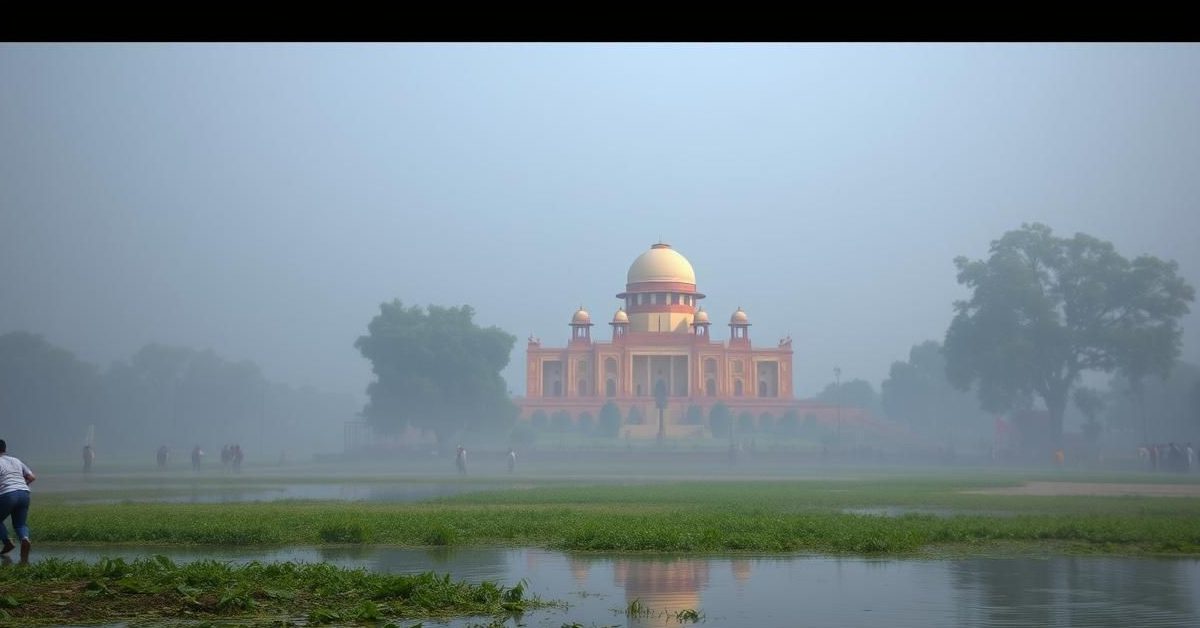Significant developments are unfolding across India, from the Supreme Court’s suggestions on electoral roll revision and Maharashtra’s new law targeting ‘urban Maoism’ to a crucial agricultural research institute seeking India’s financial support.
Electoral Rolls Under Review: Supreme Court’s Suggestion
The Supreme Court of India recently declined to halt the Election Commission of India’s (ECI) ongoing Special Intensive Revision (SIR) of electoral rolls in Bihar, a state soon to face elections. However, the apex court suggested that the ECI consider including Aadhaar, voter ID, and ration cards among the documents for updating the rolls.
This ‘intensive’ revision involves preparing electoral rolls from scratch through house-to-house field verification. The “special” aspect of the current exercise, which is a departure from past practices, lies in its hybrid approach and the new requirement for documentary proof during the enumeration stage itself.
The ECI has announced that this intensive verification will be carried out nationwide, starting with Bihar. The Supreme Court has asked the ECI to provide reasons if it chooses not to adopt the suggestion, with a follow-up hearing scheduled before the draft electoral roll publication.
Maharashtra Tackles ‘Urban Maoism’ with New Bill
Maharashtra’s Assembly has passed the stringent Special Public Security Bill, aiming to combat “unlawful activities of Left Wing Extremist organizations or similar organizations.” Chief Minister Devendra Fadnavis stated that Maoists, having lost ground in rural areas, are now attempting to “brainwash the youth of urban areas” and incite them against the democratic system.
The Bill introduces a broad definition of ‘unlawful activity,’ encompassing actions that “constitute a danger or menace to public order, peace and tranquility” or interfere with public order or law administration. Despite Opposition concerns about its wide scope and potential misuse against legitimate protests, the Chief Minister assured that the law targets extremism, not dissent.
Maharashtra is now the fifth Indian state to pass such a bill, reflecting a growing focus on ideological radicalization in urban settings, distinct from traditional rural insurgency.
Green Revolution Pioneer Seeks India’s Support
The International Maize and Wheat Improvement Center (CIMMYT), the organization founded by agricultural scientist Norman Borlaug, who pioneered India’s Green Revolution, is currently facing a significant funding shortage. This crunch is largely due to the United States Agency for International Development (USAID) officially shutting down from July 1, impacting CIMMYT as USAID was its largest funder.
CIMMYT, headquartered in Mexico, has a deep historical connection with India, having provided the genetic material for many of India’s early high-yielding wheat varieties. Today, its research focuses on developing heat-tolerant and disease-resistant varieties of wheat and maize, crucial for food security in a changing climate.
The organization is now appealing to the Indian government and private sector for financial support to sustain its vital breeding research. CIMMYT has a strong presence in India through the Borlaug Institute for South Asia (BISA) and a specialized maize facility, with a substantial number of Indian scientists contributing to its global efforts.
- The Supreme Court suggested the ECI include Aadhaar, voter ID, and ration cards for electoral roll revision in Bihar.
- Maharashtra’s new bill targets ‘urban Maoism’ and broadly defines ‘unlawful activity’.
- CIMMYT, a key agricultural research body, faces a funding crisis after USAID’s shutdown and is seeking India’s help.
These developments underscore India’s dynamic landscape, addressing critical issues in governance, internal security, and sustainable agriculture.















